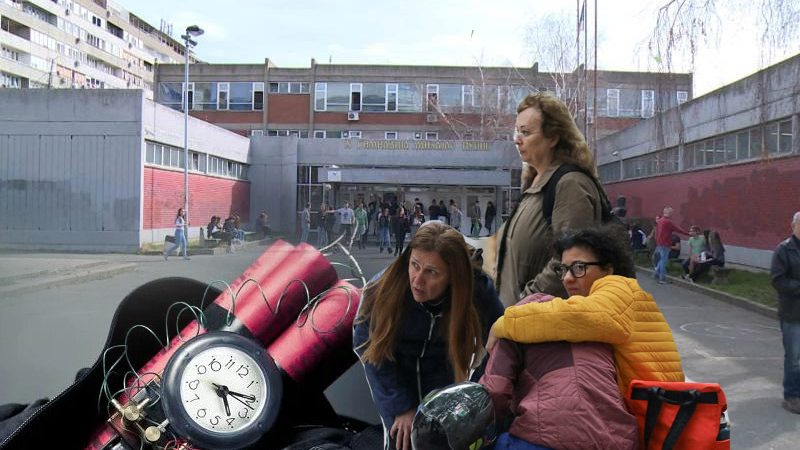115 Serbian schools receive bomb threats amid concerns following deadly mass shootings

Dozens of schools in Serbia were on high alert early Wednesday following bomb threats, amid growing security concerns after two deadly mass shootings rocked the Balkan nation earlier this month, killing ten people and leaving 21 others injured.
Also Read – Wagner Group Desperate To Recruit Hooligans From Across The Globe To Make Up For Head Loss
According to the education ministry, 78 elementary schools and 37 high schools in the capital, Belgrade, received warnings on Wednesday via email that explosive devices had allegedly been planted in the institutions.
Classes were swiftly postponed and students evacuated as police thoroughly checked the buildings. So far, there have been no reports of bombs being found in any of the institutions. The police are yet to release their report.
Bomb threats aren’t new for Serbians. Similar multiple warnings have earlier been delivered to school addresses, in Serbia and other countries in the region, and have been proven false every time. But the threats can undoubtedly increase security concerns following two mass shootings.
The incidents from May 3 and May 4 shocked Serbia and the rest of the world too. Mass shootings are rare in the country owing to its strict gun control laws. But hundreds of thousands of illegal weapons are still available there following major conflicts in the 1990s.
Serbian authorities have already launched a gun crackdown, while deploying police in schools. The first shooting happened at an elementary school when a teen took his father’s gun and opened fire at the teacher and his fellow classmates.
Just a day later, a 20-year-old targeted people in two villages south of Belgrade with an automatic weapon on a random basis. The shootings stunned Serbia and triggered strong protests against violence. More demonstrations are planned for Friday.
Opposition parties are demanding the resignation of ministers of interior and intelligence chief, and that a couple of pro-government networks lose their nationwide broadcast licences for airing violent content and hosting crime figures and war criminals on their programs.
Also Read – Morocco’s Western Sahara autonomy plan receives international support
Opponents have also accused the president, Aleksandar Vucic, of a crackdown on democratic freedoms and hate speech against critics, which they say fuel tensions and divisions in the country. But Vucic has rejected the allegations and has called an own rally for May 26, while suggesting a snap election could be organised by September.




